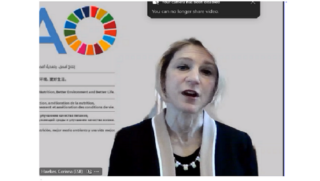
KUALA LUMPUR: Malaysia needs to review its overall food safety procedures following the New Straits Times’ expose on the meat cartel scandal.
Federation of Malaysian Consumers Association (Fomca) president Datuk Dr N. Marimuthu said while companies could export their produce here, they must ensure safety standards were met.”It (imported food products) can come from any part of the world, but ensuring the food is safe for consumption is of paramount importance, apart from obtaining halal certification,” he said, adding that the recent expose was a wake-up call to place more emphasis on food safety and security.
Malaysian Muslim Consumers Association (PPIM) president Datuk Nadzim Johan said the authorities must address loopholes in awarding the approved permit (AP) to local frozen meat importers.
“The relevant authorities must investigate whether these AP holders are genuine importers and do not abuse the permits,” he said.
Meanwhile, an official at the Russian Trade Representative Office in Malaysia said the federation viewed halal food issue seriously, with over 20 million Muslim population there.She said the Russian authorities have their own set of strict requirements for meat export and would abide by the regulations imposed by the respective countries that imported its produce.
“There is a growing demand for halal produce. At present, we don’t have companies exporting halal meat to Malaysia although some of have expressed interest in doing so.
“We are working on the halal certification, but it will not be a quick process as we will have to wait for feedback from the Malaysian authorities,” she said. She also hoped the recent development would not affect co-operation between the two countries.
NST, on Dec 21, reported that a meat cartel syndicate has been allegedly bribing senior government officers from four agencies to bring non-certified meat into Malaysia and passing it off as halal-certified products.
It is believed that the cartel imports meat from non-halal certified slaughterhouses in countries such as Brazil, Bolivia, Canada, Colombia, Spain and Mexico.
It was also learnt that the cartel has been in operation for more than 40 years.



